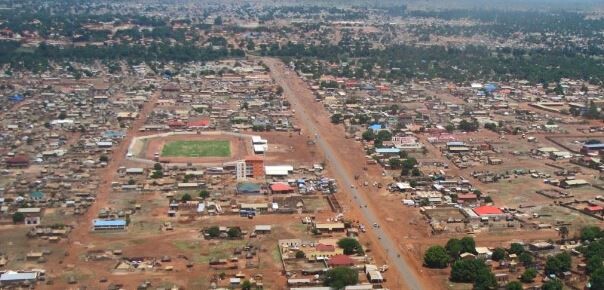Twenty journalists drawn from different media houses in Wau, Western Bahr el Ghazal State, on Monday, commenced a three-day training sponsored by the International Organization for Migration (IOM) aimed at equipping them with the knowledge to accurately report on land disputes in the Country.
Speaking at the opening of the training, the head of the IOM sub-office in Wau, Dr. Joseph Nyangaga, said training journalists is very important since they provide accurate information to the public about land disputes. He also said the training is intended to build awareness about conflict sensitivity and reporting on the Housing, Land, and Property (HLP) Policy issues among media practitioners and stakeholders in the country.
“You are the people who pass the information, you are the people whom we rely on to get information and we cannot discount you at all because you are very important to the society for any development and the role which you play is very important for everyone and every citizen in this country,” he said. “As IOM, and taking into account the importance of the media in disseminating information to our people here, this collaboration is very important because this the way people get to know where they get support.”
Some of the journalists who are participating in the training told Radio Tamazuj that they will acquire knowledge on how to report or investigate issues related to land disputes in the state.
Michael Wundi, a participant, said Western Bahr el Ghazal State is experiencing similar challenges facing people in Juba regarding land disputes.
“I think this training has come at the right time because, in Western el Ghazal State, we have similar problems to what is happening in Juba, especially regarding land grabbing. There are malpractices in land ownership documents even in the lands ministry and sometimes you find one plot is owned by more than three people who possess the same land titles,” he explained. “Our role as journalists is to do reporting about this such that the government finds a better way of addressing these issues related to land. This training is going to refresh our knowledge on how to report on land issues.”
Another journalist, Joseph Mali, thanked IOM for training the journalists in the state on land dispute reporting.
“I want to thank IOM for training the journalists in Western Bahr el Ghazal State. The topic today discussed housing, land, and property policy. This is the first time we have had such a training,” he said. “This training will equip us to investigate stories related to land disputes. It also highlights linkages between reporting on land policies and peacebuilding.
In 2022, IOM launched a project based on the rationale that housing land and property disputes reflect deep-rooted challenges regarding local governance and the rule of law, which ultimately may cause tensions to rise between individuals and communities that enhance the risk of triggering violent conflict.
On the one hand, the project seeks to enhance the capacities of both duty bearers and formal governance systems of HLP to provide consistent, and reliable public service per the Land Act and Local Government Act, as well as enhance the awareness and capacities of rights bearers concerning claiming HLP rights per the law.
While recognizing that the formal justice system has a capability shortfall, the project seeks to promote alternative dispute resolution mechanisms through peacebuilding efforts that engage stakeholders on HLP.
A series of engagements will diagnose HLP challenges, identify possible solutions, and propose scenarios for resolution.
Finally, the project links peace dividends to alternative dispute resolution at the community level, including prioritization of community assets that reduce competition over natural resources and challenges related to shelter.
The Housing, Land, and Property project is the first project-wide activity supported by IOM that convenes stakeholders on peacebuilding regarding issues of housing, land, and property in Wau, Juba, and Rubkona as pilot counties. The launch will build on an initial assessment conducted by IOM in February 2022.




